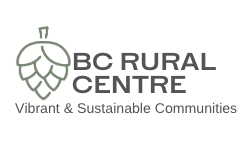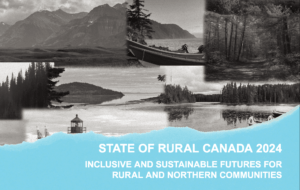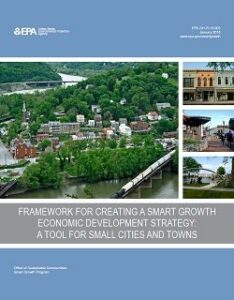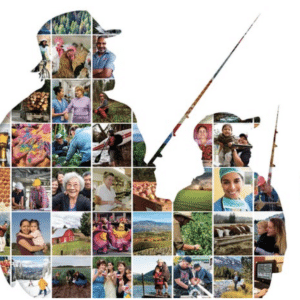Featured Report
Economic Resilience Action Plans: Toolkit for Plan Development
How to Use this Toolkit This toolkit was developed to accompany an in-person economic resilience planning process and help communities to fill gaps, expand their thinking about particular issues, and keep track of relevant questions to answer towards economic resilience. The toolkit explains each section of the plan and provides case studies, suggested activities, and…
Read MoreThe SEED Model for Sustainable Economic Development in Small Rural Towns via Outdoor Recreation
Abstract Rural small towns continue to face serious challenges, including population decline, high poverty levels, and insufficient infrastructure, among others. The sustainable ecosystem economic development (SEED) model provides a framework for remote rural communities to work collaboratively with government agencies, businesses, and nonprofits facilitated by project champions to develop and maintain healthy, sustainable economies. While…
Read MoreThe State of Rural Canada
The State of Rural Canada report provides a comprehensive overview of the diverse challenges and opportunities facing rural, remote, and northern communities across the country. While each region has its unique context, several overarching themes emerge from this fifth version of the report that paint a picture of rural Canada as a complex mosaic of…
Read MoreKeeping it Clean – Video
The forested watersheds of British Columbia’s Interior are a primary water source for aquatic ecosystems and human populations. The mountain pine beetle (MPB) infestation and associated salvage harvesting have the potential to affect the amount, timing, and quality of water originating from these watersheds. Watch the video on the MPB Hydrological Impacts and Watershed Management…
Read MoreStudy on Supply Chain and Community Benefits of the Forest Sector
A new economic study focusing on local communities across BC was released today by the BC Council of Forest Industries (COFI). This study highlights the vital role of British Columbia’s forestry industry, as it touches so many communities across the province and employs British Columbians in a wide array of jobs. In 2022, the forestry…
Read MoreRural Resident Retention and Attraction Guidebook
Introduction to Rural Resident Retention and Attraction What is Resident Retention and Attraction? Resident retention and attraction (RRA) initiatives position communities to address issues associated with population size (e.g., low or declining number of residents) or population composition (e.g., aging population) — whether that be a shortage of skilled workers, low school enrolment, or a…
Read MoreReal-Time Virtual Support
Relational Work Is the Work: Virtual Healthcare Transformation for Rural, Remote, and First Nations Communities in British Columbia The healthcare crisis across unceded First Nations territories in rural, remote, and Indigenous communities in British Columbia (BC) is marked by persistent barriers to accessing care and support close to home. This commentary describes an exceptional story…
Read MoreFramework for Creating a Smart Growth Economic Development Strategy
A Tool for Small Cities and Towns Many small and mid-sized cities around the United States are struggling because their economies were built largely on a single economic sector that has changed significantly. For example, jobs might once have been heavily concentrated in industries like logging, mining, or manufacturing, but technology and market forces have…
Read MoreStrongerBC for everyone – Investing in Rural Communities
The B.C. government has released StrongerBC: Good Lives in Strong Communities, a new vision that outlines investments to help build a brighter future for rural communities and the people who call them home. “If you’re looking for people to help cut through the noise and get a job done, my bet will always be on…
Read MoreDigitalization and Housing
Framing Paper for “Bringing Digitalization Home: How Can Technology Address Housing Challenges?” OCTOBER 2022 | DAVID LUBEROFF, CHRISTOPHER E. HERBERT To stimulate these discussions, the Joint Center for Housing Studies, with support from Qualcomm, Inc., commissioned eleven papers by leading researchers familiar with how digitalization is changing (or could change) practices in five key areas:…
Read More









